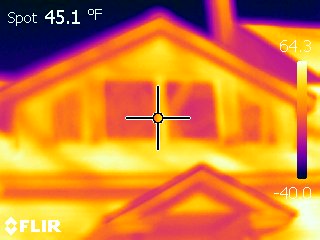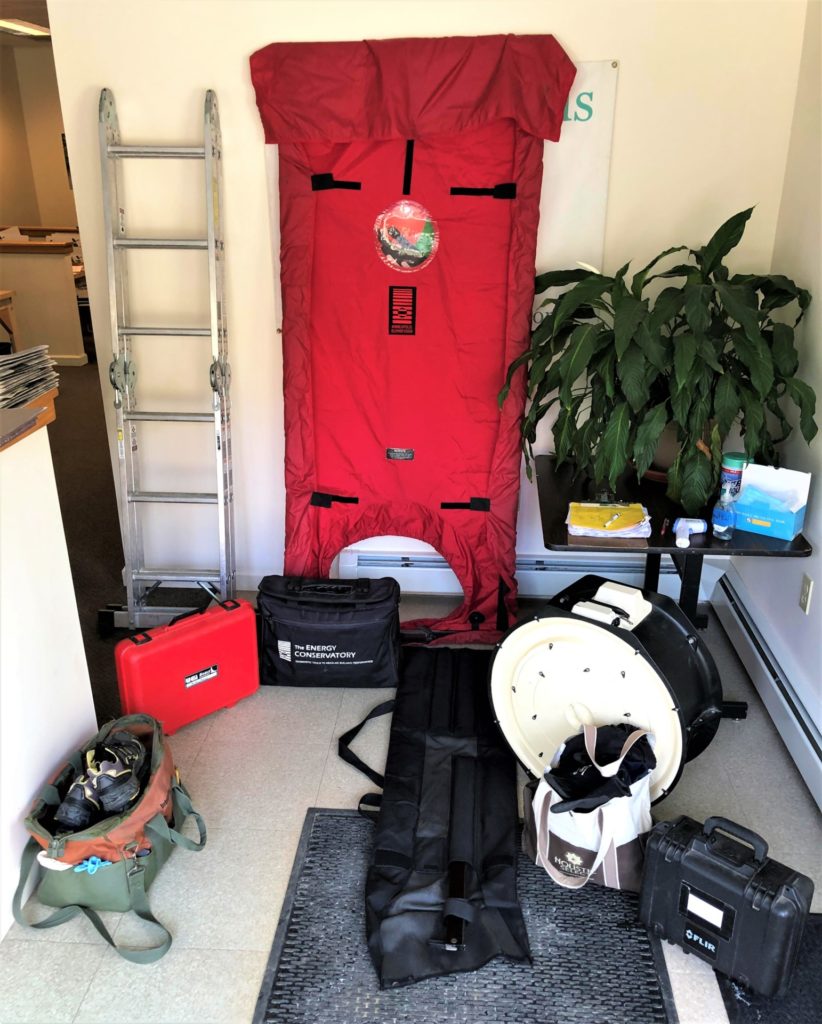

Have you ever wondered… when is the best time of year for an energy audit? Should I wait to schedule an audit until the winter? Do audits even make sense during the summer? If you have asked these questions, we are here to help. The BPI Certified Energy Auditors and expert building analysts at Building Energy have some answers for you:
Any season of the year is a great time for an energy audit. Building Energy performs energy audits year-round.
Let us dig into why this makes sense. Some people think an energy audit in the summer might not be feasible due to a smaller temperature difference between the home’s interior and exterior. They know that energy auditors use a thermal or infrared camera that detects temperature differences, and wonder if the readings will not be optimal or accurate. However, there are several reasons why temperature and temperature differences do not hinder a successful energy audit:
1. The infrared camera is but one tool that energy auditors use.
- By far the most important tools are the auditor’s thorough visual inspection of the home and their years of experience performing both the energy audits and the follow-up weatherization work. They test buildings before and after projects, so they know what works.
- The blower door test and other analyses performed by auditors provide much of the same information that would be provided by the infrared camera.
2. The infrared camera images are helpful mainly as a visualization tool for customers.
- The images allow customers to see what auditors already see and know from their suite of analyses.
- Given the benefits of these images as a visualization tool, we work to maximize the number of audits in which we can use an infrared camera:
- We often schedule energy audits in the morning when the temperature outside is cooler for much of the year.
- We can detect a temperature difference in buildings that are air-conditioned during the warmer months.
3. The infrared cameras are most useful in older homes – typically early 1900s and before.
- In these homes, auditors are trying to identify the presence or absence of wall insulation and how complete it is. With that said, wall insulation is not usually on the top of the weatherization priority list.
- It is not uncommon for our auditors to do an energy audit on an 1800s home in the summer, complete attic and basement/crawl space weatherization as phase 1, and then come back in the winter (often during the “test-out” of phase 1) to investigate the wall insulation with an infrared camera as part of phase 2 of the project.
4. Our energy auditors bring the infrared camera with them year-round.
- It might be useful on a hot day because the inside is cooler than the outside and they can see some of the same images as they would in the winter, but in a reverse temperature pattern. This is especially true if the building is being air-conditioned.
- Interpreting infrared images throughout the various seasons is one of the benefits of hiring an experienced energy auditor.

The bottom line is that an infrared camera is a useful tool for energy audits, but auditors use many other tools as part of the process. You will be amazed at how much “stuff” our auditors bring into your house when we come to do your energy audit!
In addition to using an infrared camera, our auditors:
- Look at your current heating, fuel, and electrical use.
- Perform a walkthrough of your house with you to learn about high-priority issues (drafts, moisture, etc.).
- Complete a 2–4-hour on-site assessment. Look at insulation levels, square footage, perform a blower door test to measure air leakage, and test the safety and efficiency of your combustion appliance (e.g., boiler, furnace).
- If desired, assess your site for solar electric and/or cold climate heat pumps.
- Provide a detailed written report that reviews the current insulation levels and airtightness of your home, areas of heat loss, and a proposals and recommendations section where they identify both short- and long-term solutions to improving comfort and reducing your energy consumption and carbon footprint. Proposals include pricing and percentage heat savings when applicable.
- Work with the Efficiency VT Home Performance with Energy Star program so you can receive incentives for the weatherization work we complete.
The Vermont Department of Public Service even notes on their website that:
“An energy audit (also called an “energy assessment”) can be conducted year-round and helps provide you with a solid understanding of how your building is currently performing.”
Whether you want to improve the comfort of your home, save money on energy bills, or invest in energy efficiency, an energy audit can help, no matter the time of year.
Reach out to our team if you would like to learn more about energy audits. Fill out our Contact Form, send an email to [email protected], or call us at (802)-859-3384.